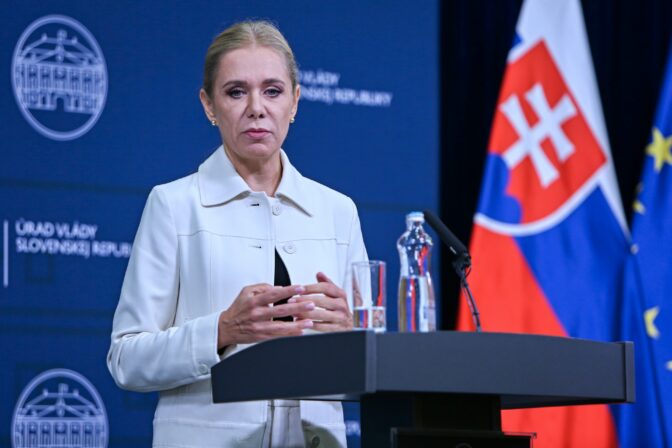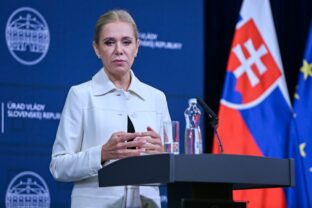BRATISLAVA, January 10, (WEBNOVINY) — The plenary session of the Supreme Court dealt on Monday with lawsuits for alleged discrimination that judges discontent with lower salaries than those of their colleagues from the former Special Court filed against the Supreme Court. Supreme Court President Stefan Harabin convened the plenary session and set its agenda. He asked the judges for a recommendation whether he should appeal against court verdicts awarding compensation to the judges. The plenum agreed to recommend that Supreme Court President Stefan Harabin does not appeal in the case of justices of his court who won their „discrimination“ lawsuits. The plenary session tells the Supreme Court President to reach such an agreement with the judges instead, within which this discrimination is eliminated and the court’s costs do not needlessly go up, according to Harabin. He informed that almost seventy judges at the plenary session raised their hands for the resolution.
In December, eleven judges of the Supreme Court won their discrimination lawsuits at the Bratislava I District Court. Harabin estimates that a one-third or maybe even a half of Supreme Court judged filed such lawsuits against the Supreme Court. Asked whether he will obey the resolution and will not appeal against the court’s decisions, he said he will proceed in line with the Constitution, laws, and his conscience. In the aforementioned cases of the eleven judges who won their lawsuits at the first-instance court against the Supreme Court, the Justice Ministry is entering the court proceeding as an opponent or as a secondary defendant and is considering doing so also in other cases, in which judges filed lawsuit against courts. „But this does not mean that it will be admitted“, Harabin commented adding that the court will decide on it while the issue of appealing or not appealing the verdict is not on the agenda of the day yet.
„The ideal and easiest solution is, according to my opinion and I will not stop saying it, that Special Court judges return the discriminatory bonus“, said Harabin. He cited the decision of the Constitutional Court to support his opinion which he says ruled that the sum of the bonus is anti-constitutional.
Harabin thinks that the Monday’s plenary session was of great importance. “In order that the political power realizes that also the opinion of judges of the Supreme Court plenum is here“, he said. Harabin specified that the plenary session appealed on lawmakers and the government to negotiate and that a joint commission is formed to remove the current state of affairs.
A group of judges of the Supreme Court, which disapproves of today’s plenary session of the court over discrimination lawsuits, walked out of the session right at the beginning. “We were forced to leave the plenary session of the Supreme Court, which clearly fails to meet requirements of a fair and lawful action,” said Miroslav Gavalec citing from the statement of the judges.
The group believes that the law does not entitle Stefan Harabin to convene a session which such agenda. Gavalec said that usual initial discussion was also skipped at the beginning and the plenum immediately approached voting, which “we opposed to”. The judges opine that convening today’s plenary session with such program was unlawful. “Violation of the law is one of the reasons for commencement of disciplinary proceedings, which are in jurisdiction of other authorities. They should consider whether convening of such plenary session is a reason for commencing disciplinary proceedings or not,” thinks Gavalec.
The group pointed out in its statement that the Supreme Court president is the authority that administrates and manages the court. “One of his obligations is solving financial issues related to functioning of courts,” they wrote. The plenum of the Supreme Court is a special body, which does not execute administration and management but is the body that manages judicial matters and has special decision-making powers set by law. None of these bodies can overstep their powers, claims the group in its statement and named convening of the plenary session of the Supreme Court with a proposed program that evidently oversteps its powers as an example. “Such situation is inconceivable in a country that respects the rule of law and cannot be rectified by an opinion of the majority in the plenum,” the judges wrote.
SITA












